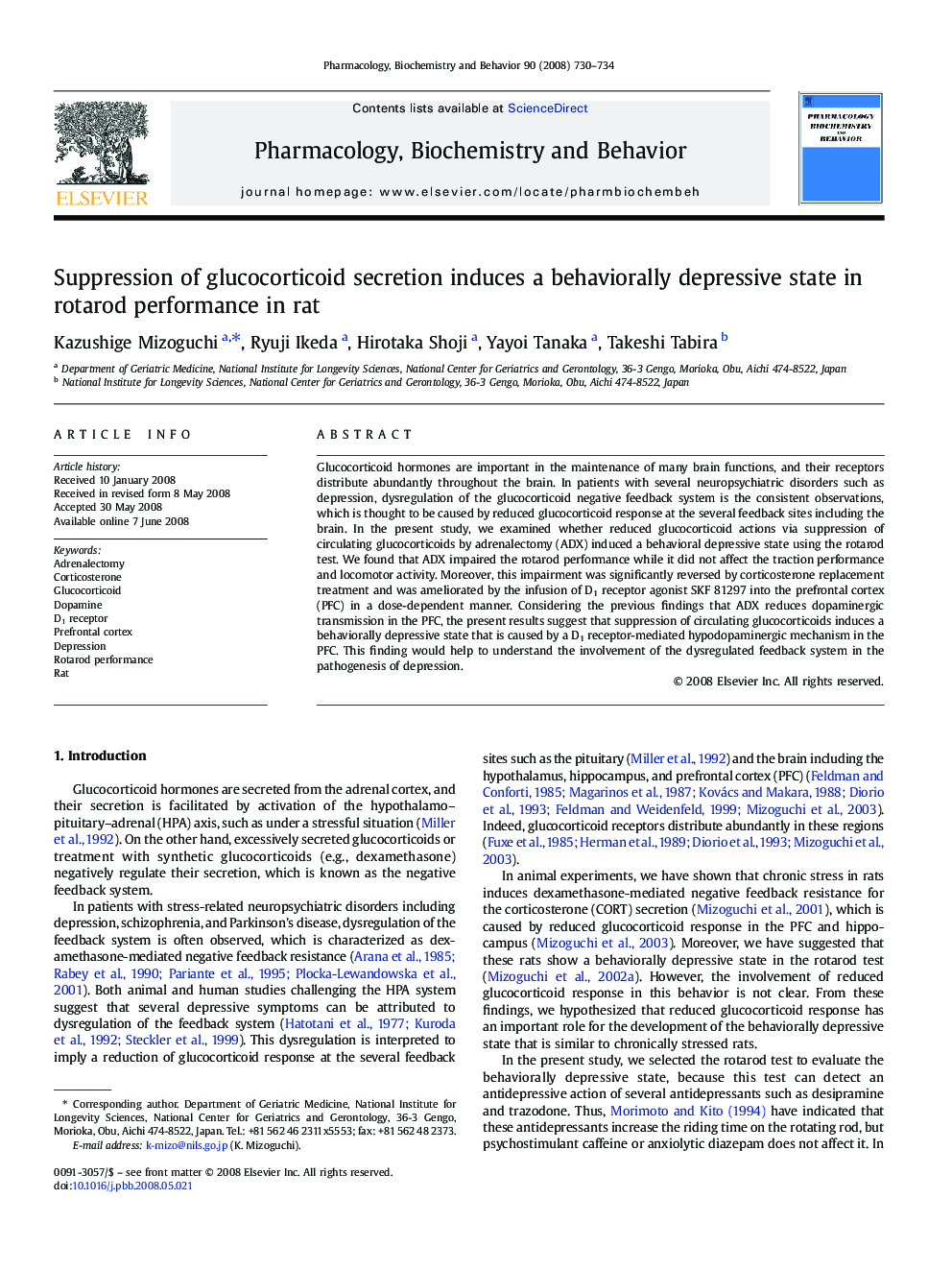| Article ID | Journal | Published Year | Pages | File Type |
|---|---|---|---|---|
| 2013332 | Pharmacology Biochemistry and Behavior | 2008 | 5 Pages |
Abstract
Glucocorticoid hormones are important in the maintenance of many brain functions, and their receptors distribute abundantly throughout the brain. In patients with several neuropsychiatric disorders such as depression, dysregulation of the glucocorticoid negative feedback system is the consistent observations, which is thought to be caused by reduced glucocorticoid response at the several feedback sites including the brain. In the present study, we examined whether reduced glucocorticoid actions via suppression of circulating glucocorticoids by adrenalectomy (ADX) induced a behavioral depressive state using the rotarod test. We found that ADX impaired the rotarod performance while it did not affect the traction performance and locomotor activity. Moreover, this impairment was significantly reversed by corticosterone replacement treatment and was ameliorated by the infusion of D1 receptor agonist SKF 81297 into the prefrontal cortex (PFC) in a dose-dependent manner. Considering the previous findings that ADX reduces dopaminergic transmission in the PFC, the present results suggest that suppression of circulating glucocorticoids induces a behaviorally depressive state that is caused by a D1 receptor-mediated hypodopaminergic mechanism in the PFC. This finding would help to understand the involvement of the dysregulated feedback system in the pathogenesis of depression.
Keywords
Related Topics
Life Sciences
Biochemistry, Genetics and Molecular Biology
Biochemistry
Authors
Kazushige Mizoguchi, Ryuji Ikeda, Hirotaka Shoji, Yayoi Tanaka, Takeshi Tabira,
